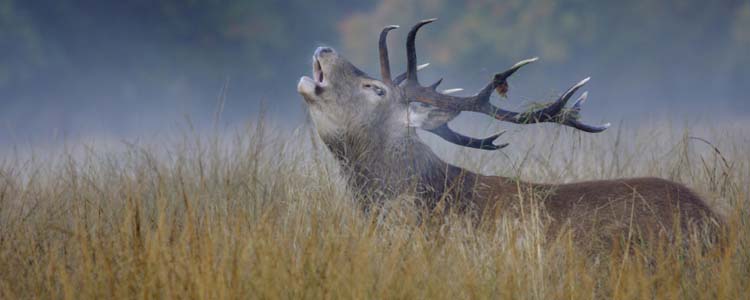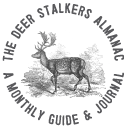Ever since Eugen Herrigel’s ground breaking book ‘Zen in the Art of Archery’ the west has come to understand the importance of mind and body coordination in sport.
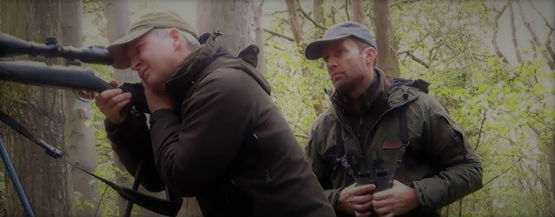
There are many elements to deer stalking that keep us coming back for more, the friendships that we build, the exercise, the sense of calm that being immersed in nature can bring and more, but there is another fundamental element that makes deer stalking so addictive, and that is because it connects us both with our basic instincts and demands that we live in the moment. Deer stalking is, I believe, good for the soul.
Like some other disciplines, hunting requires that we live in the moment, something that is fundamental to good mental health, and this state is more readily achieved when we engage both our mind and body simultaneously.
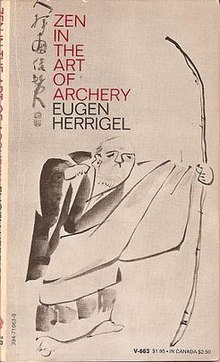 This cooperation is of course not unique to Deer Stalkers, but is experienced by all sportsmen and women who practice their sports at a high level.
This cooperation is of course not unique to Deer Stalkers, but is experienced by all sportsmen and women who practice their sports at a high level.
In many ancient traditions, notably Buddhism and Hinduism, the benefits of mind and body cooperation have been acknowledged for centuries, and in the west became prevalent amongst sport psychologists in the latter part of the 20th Century after the release of the ground breaking book by Eugen Herrigel ‘Zen in the Art of Archery’. This book was amongst the first of its kind and examined the way that Zen Buddhists used physical pursuits such as the martial arts (in this case archery) to achieve spiritual enlightenment. It was a book that was to go on to inspire other authors such as Tim Gallweys 1974 book ‘The Inner Game of Tennis’ and countless films and marked an awakening amongst western sports coaches to the fundamental requirement of mind and body cooperation in achieving a high level of sports performance.
Add to this, the fact that hunting taps into an innate basic instinct and the sheer intensity of focus that many hunters experience when they are in the final moments of a stalk is magnified to a level of acuteness rarely experienced in our everyday lives.
The phenomenon of perfect cooperation between mind and body was recognised by the tennis player Jimmy Connors who recounted moments in his playing career when he felt that there were instances when his mind and body were perfectly in tune and that every shot he played was perfect.
I propose that when we hunt we experience an extreme of this reality, enhanced by the fact that we are also participating in a mental and physical activity that is instinctive to our nature. For this reason the level of focus experienced in the final moments of a hunt can be quite overpowering and involve a ‘shutting out’ of all unwanted stimuli in a concentrated effort to focus on the job at hand. For however long it lasts, we are in these minutes truly living in the moment.
If you doubt what I am saying, watch the strength of concentration in a cat when it is stalking a bird or a when you watch a fox stalk a mouse.
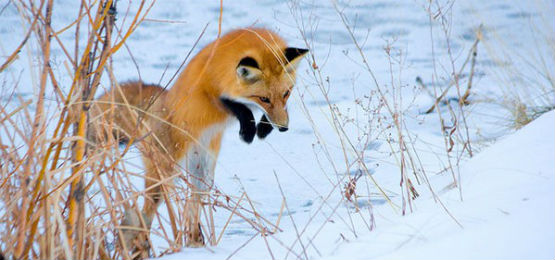
Of course, there can be negative repercussions. When experiencing their first hunt, the intensity of concentration and focus can mean that many novices tune-out outside stimuli, which sometimes includes a ‘tuning out’ of basic instructions, a potential problem that those mentoring beginners should appreciate. However, in my experience the extreme focus demanded when hunting deer is, on the whole both positive and highly addictive.
The rush of adrenalin, mind and body focus, and the intensity of living in the moment, is a powerful drug, and I believe a big part of what keeps people coming back for more.
For the beginner, and even the more experienced stalker, this absorbing experience can manifest itself in the participant re-living the moment over and over in their mind. This is certainly something that I recall doing after my own first stalk many years ago and for countless hunts thereafter.
Whether or not you subscribe to the Buddhist theory of enlightenment through sport, deer stalking can be a very welcome and therapeutic pursuit, that can have huge benefits in alleviating some of the stresses of our everyday lives.
 Peter Jones has a BA (Hons) degree in Philosophy and Sport psychology from Brunel University.
Peter Jones has a BA (Hons) degree in Philosophy and Sport psychology from Brunel University.
If you would like to experience for yourself the thrill of deer stalking then visit our 'Go-Stalking page for more details: go-stalking




